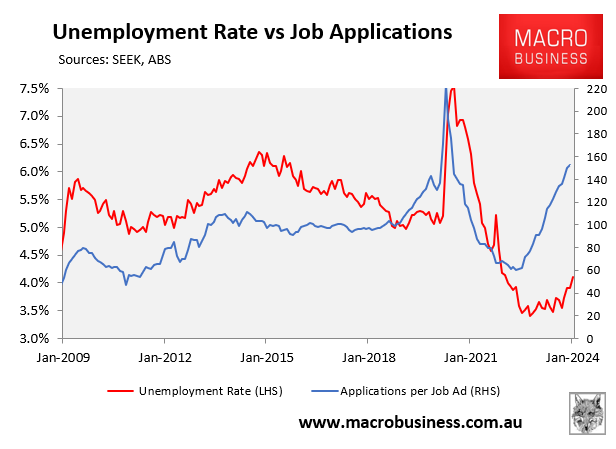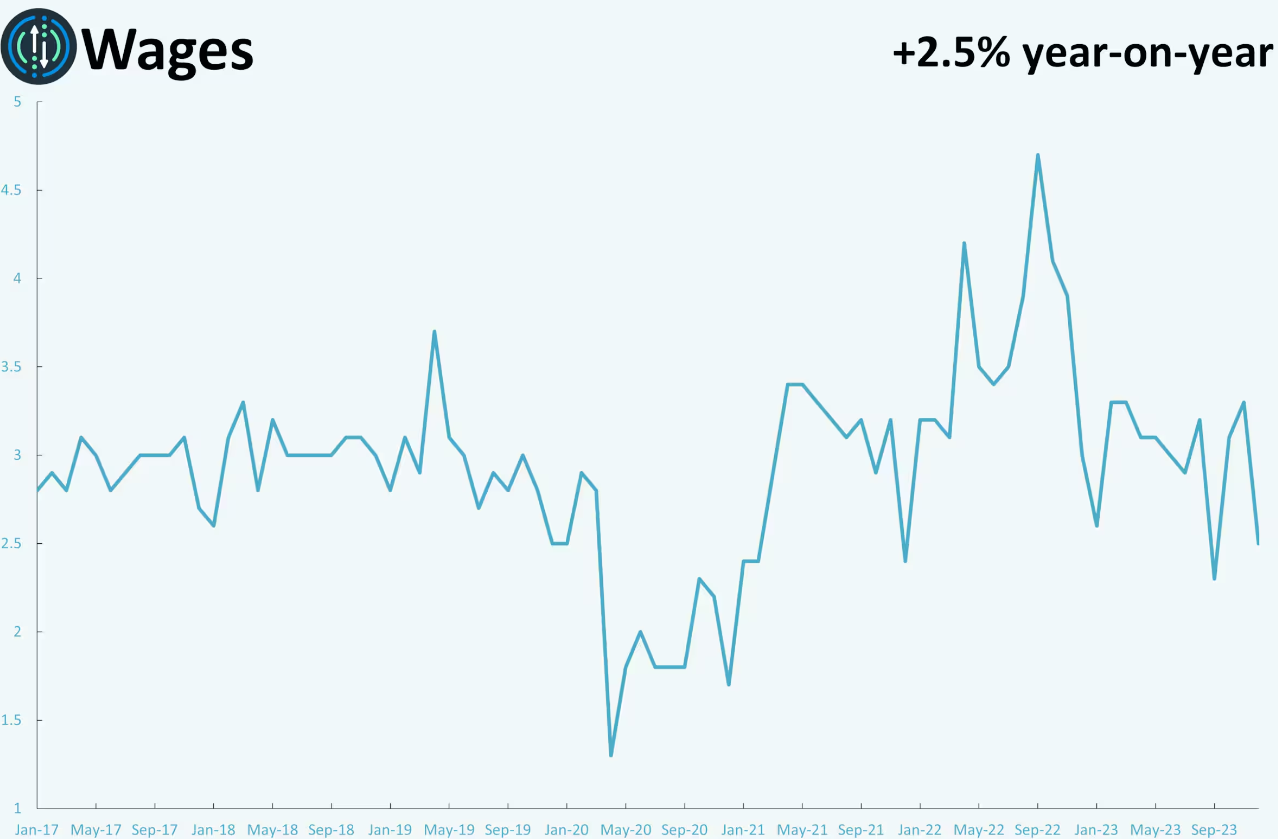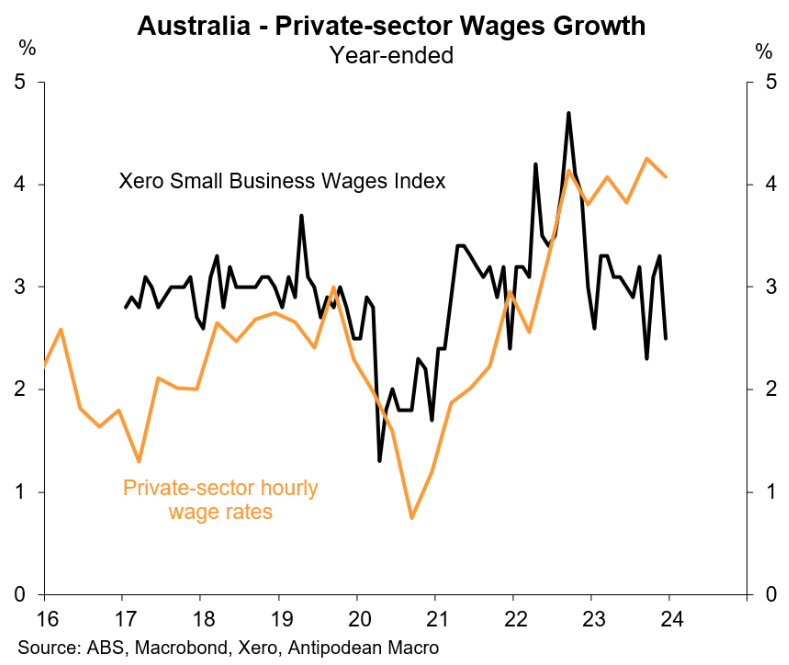We have warned for months that Australia’s wage growth would stall as historically high net overseas migration collides with the slowing economy.
This imbalance between labour supply and demand is best illustrated by the below chart plotting the sharp increase in the number of applicants per job advertisement against Australia’s official unemployment rate:

As shown above, the increase in the number of applicants per job ad points to rising unemployment in the period ahead.
In turn, wage growth will stall as a rising number of job seekers compete for a shrinking pool of jobs.
On Tuesday, Xero released its Australian small business insights survey, which reported that small business wages rose by only 2.5% in the 2023 calendar year:

Source: Xero Australian Small Business Insights Survey
Justin Fabo at Antipodean Macro questioned whether small businesses are the canary in the coal mine for Australian wages.
“Xero’s data shows (much) slower growth in small business wages compared with the private-sector wage price index measure”, Fabo wrote.
“Also note that the WPI has not included businesses with 0-4 employees in its coverage since Q4 2009. At the time, the ABS noted evidence that the size and frequency of pay changes for jobs in micro businesses was the same as for larger businesses”.
“Maybe that’s not the case at the moment”, says Fabo.

It is worth pointing out that Seek’s advertised salaries index has stalled, growing at an annualised rate of just 3.1% over the past four months and falling fast.
“With unemployment rising, and with fewer jobs advertised than a year ago, employers aren’t having to compete quite as hard for talent to fill vacant roles, lessening the need for wage increases for new hires”, Seek senior economist Matt Cowgill said.
That is what happens when you run mass immigration into a slowing economy.

